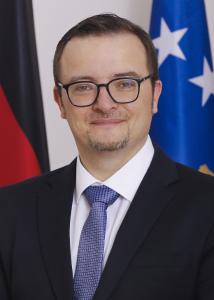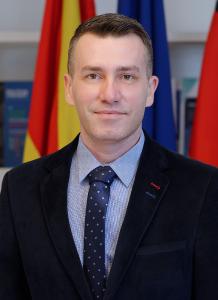Perceptions of the citizens about the position of the Islamic Religious Community - European and International Cooperation
This time we are talking about a specialized survey of public opinion, which analyzed answers about the role of the Islamic Religious Community (IRC) in society, its trust among Muslims believers, as well as the role of Islam in society. This is the first such survey that reveals interesting results.
The Islamic religious community in the Republic of North Macedonia enjoys high trust among its believers, shows the latest research of Religija.mk, Institute for Political Research - Skopje and Konrad Adenauer Foundation, part of the project for the analysis of public perception in multi-religious societies, such as North Macedonia.
The survey, which included only Muslim believers, shows that 66.7% of those polled have confidence in IRC, of which 22.8% declared that they have "full confidence", while 43.9% answered with "somewhat yes" they have confidence. Only 4.8% say that they have "no confidence at all" in IRC as an institution.
The head of IRC, Shaqir Fetahu, enjoys the highest level of trust among believers, 56.1% of those polled have "complete" or "somewhat" trust in him. Muftis and Imams also enjoy a high percentage of trust. In that context, the Muslims in the country would rather ask for help in solving problems from their Imam, than from the state institutions to which they should actually be directed for help with certain challenges they are facing. When asked: "Would you rather seek support from state institutions or your Imam to solve problems/challenges?", 35.8% chose the Imam as an option, while 32.3% chose state institutions.
This, first specialized survey of public opinion in North Macedonia about the perception of Muslims, shows that for a large part of the believers in the country, the postulates of Islam have a great or certain influence outside the religious institutions, that is, in their everyday life. A high 70.8% of respondents answered that "religion in their daily life has a big, or somewhat big influence".
Among the respondents, the opinions are divided about whether there are certain processes that are related to external influences from politics, which is also reflected in the perception during the election of the head and muftis.
56.6% of respondents believe that "IRC is subject, or somewhat subject to political influences". DUI is considered as a political party which the believers have the opinion of having the greatest influence on IRC. As many as 53.8% consider that this political party has the greatest influence on IRC, while the influence of other political parties is almost negligible.
It is interesting to analyze the opinion of Muslims regarding the question "Should the IRC have, or should it not have, political influence in public life". There is a division of opinion here. 41.4% of those polled decided that it should have, or should have some influence, while 40.2% believe that IRC should not, or to some extent should not have political influence in public life.
An interesting aspect of the survey reveals that for the greater majority of Muslims in the country, religious affiliation is more important than ethnicity. 42.6% consider that religion is more important for them, while 30.2% answered that ethnicity is more important than religion.
Religious radicalism is a challenge for Muslims in the country, of which 10.5% of respondents believe that it exists among a large part of the population, while 25.4% believe that religious radicalism exists among a certain part of the population.
Wearing a headscarf is a personal choice and since it is part of the traditional clothing of Muslim women in these areas, unlike the hijab and especially the burqa, the headscarf is acceptable to most Muslims in North Macedonia.
The survey confirms that the majority, or 98.7% of Muslims in North Macedonia belong to Sunni Islam and the vast majority, or 94.8% of them, declare themselves religious, or somewhat religious. In that context, the percentage of those Muslims who practice fasting is high, 51.1% "always fast" and 29.9% "sometimes fast".
The survey was conducted in May-June 2023 on 1116 respondents, keeping the general ratio in terms of basic demographic characteristics such as gender, age, profession and education. Considering the specifics of the survey, the sample is stratified according to regions and settlements. In this sample, all relevant socio-demographic characteristics of the Muslim population in North Macedonia have been observed. The margin of error is between +/-3.2% with a 95% confidence interval.
Topics
Forced exmatriculation against anti-Semitism
Liberalization approaches based on reproductive self-determination and their possible consequences
Self-determination, criminalization and mandatory counselling
Constitutional limits of a reform of §§ 218 ff. of the Criminal Code
Pregnancy Conflict and the Principle of Dual Advocacy




